Strategic Analysis Caucasus Brief
Bi-weekly review (24. 10. – 07. 11. 2022)
Tomáš Baranec
Armenia
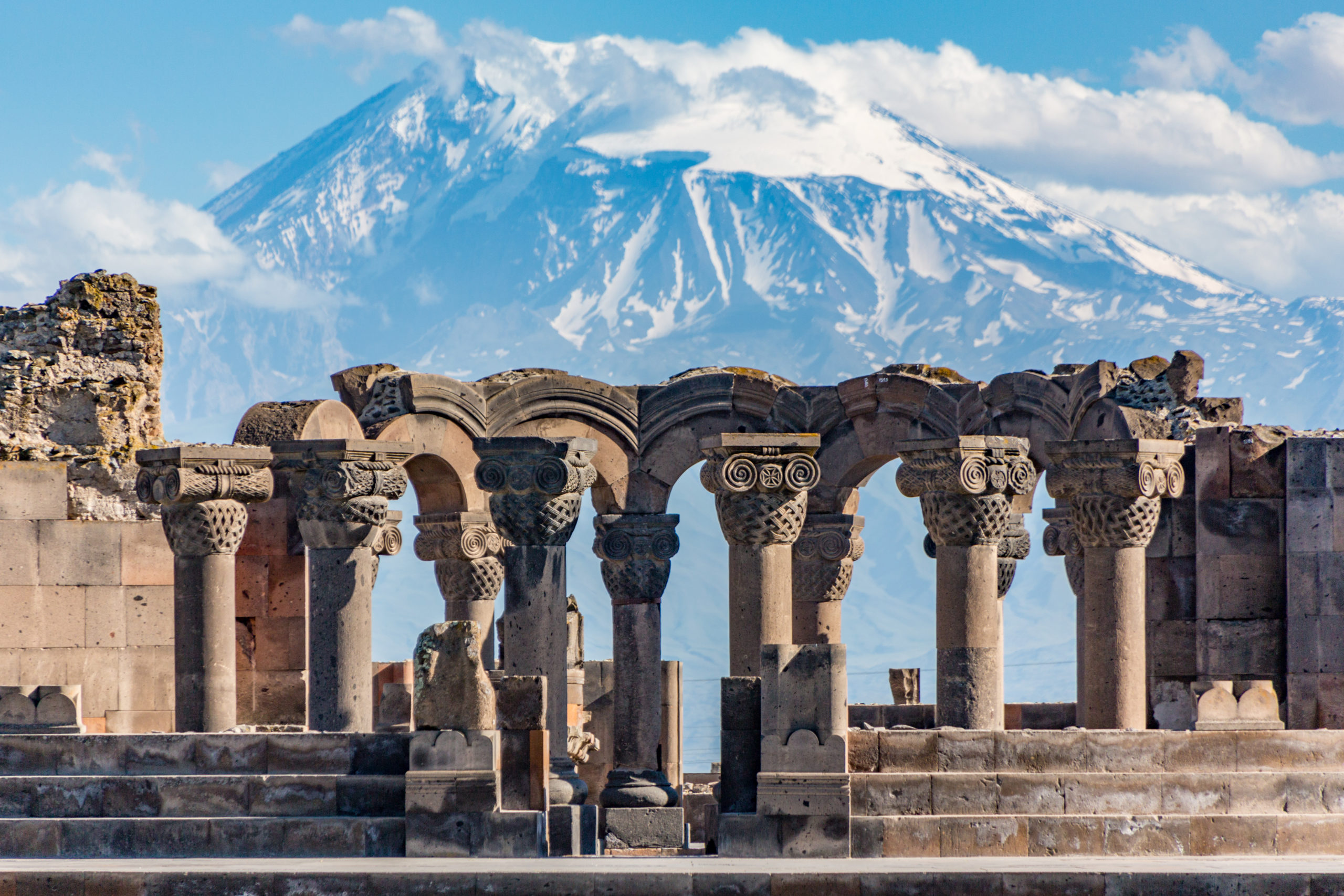
Ruins of the Zvartnos temple in Yerevan, Armenia. Photo: MindStorm/ Shutterstock.com
Pashinyan shortly visited Iran: Both countries were keen to expand economic ties
On November 1, Prime Minister of Armenia Nikol Pashinyan paid a short working visit to the Islamic Republic of Iran, where he met his Iranian counterpart Ebrahim Raisi. Before starting the negotiations, the Minister of Territorial Administration and Infrastructures of Armenia, Gnel Sanosyan and Iran’s Deputy Minister of Petroleum and CEO of the National Iranian Gas Company, Majid Chegeni, signed a memorandum of understanding on cooperation in the field of natural gas. Both parties agreed to double the amount of natural gas Iran sells to Armenia and extend their gas trade agreement to 2030.
As Eurasianet explains, an expansion of the deal has been in the works for some time. The increase in gas imports has been made possible by Armenia’s increasing capacity to generate electricity, economist Suren Parsyan told the portal. A new thermal power plant constructed by Italian firm Renco came online in 2021 and will be able to supplement the other supplier, the state-run Yerevan Thermal plant.
Russia will remain Armenia’s leading gas supplier even with the additional Iranian imports. Armenia buys over 2 billion cubic meters of Russian gas annually, paying 165 USD per thousand cubic meters. Russian gas prices went up by 15 USD per thousand cubic meters in 2019, and that price remains unchanged.
In April, Armenia started paying for its Russian gas in rubles, though the rate remains pegged to the dollar price. The supply has not been affected even as the world natural gas markets are in turmoil, with Russia cutting off many European customers and costs fluctuating wildly. In 2021, Armenia paid 414 USD million to Russia for its gas.
“Russian gas is still cheaper” than Iranian, Parsyan said. “The issue is that Russia wants money for it, but Iran agrees to be paid in electricity.” Further expansion of the Iran-Armenia energy trade could be in the works in the future.
Iranian news agency ISNA reported that during the meeting, Sanosyan and Iranian Minister of Roads and Urban Development Rostam Ghasemi decided that Iranian companies would begin construction of the 7.2-kilometer Kajaran Tunnel in Armenia in the spring of 2023. The tunnel is a part of the Sisian-Kajaran road section of the North-South transport corridor. The transport corridor will stretch from the southern Armenian town of Meghri, on the border with Iran, to Bavra in the north, on the border with Georgia.
After the meeting, Raisi stressed, among other things, that during the previous months, Teheran recorded a 43% increase in trade and economic relations with Yerevan, highlighting that the goal is 3 billion USD.
Sources:
- 1lurer.am, “PM Pashinyan pays a short visit to Iran: memorandum of understanding on cooperation in the field of natural gas signed between Armenia and Iran“, https://www.1lurer.am/en/2022/11/01/PM-Pashinyan-pays-short-visit-to-Iran-memorandum-of-understanding-on-cooperation-in-field-of-natura/824677
- MEJLUMYAN Ani, Eurasianet.org, „Iran and Armenia agree to double gas trade“, https://eurasianet.org/iran-and-armenia-agree-to-double-gas-trade
- Arka.am, „Iran to start construction of Kajaran tunnel in Armenia in 2023 spring“, http://arka.am/en/news/economy/iran_to_start_construction
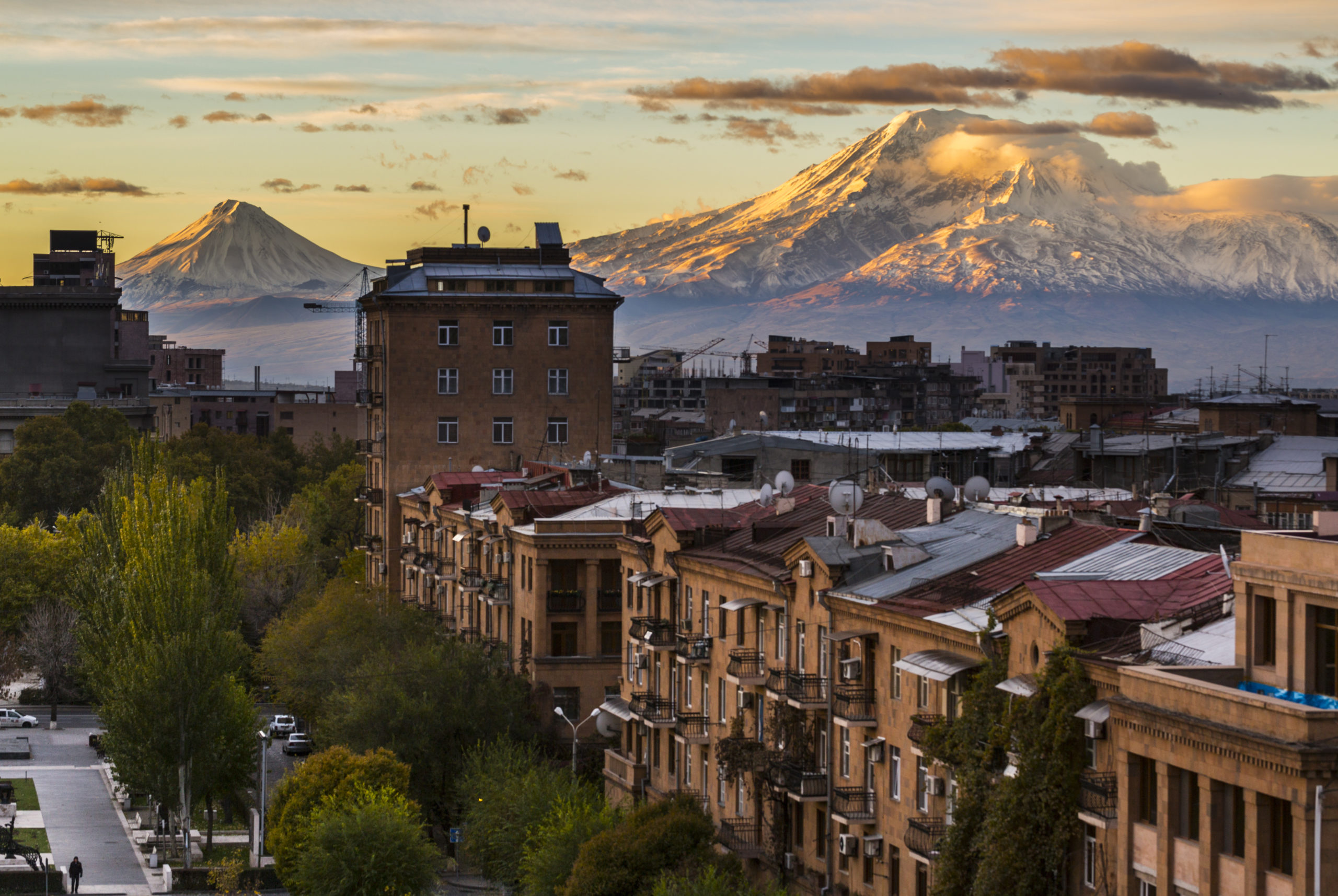
Yerevan City view with majestic Ararat mountain in the background, Armenia. Photo: YuG/Shutterstock
Yerevan has declared two well-known Russian personae non-gratae at once
A member of Russia’s parliament, Konstantin Zatulin, and Margarita Simonyan, the head of the Russian state broadcaster RT were both banned from Armenia at the end of October. “Konstantin Zatulin, who has been a fierce supporter of Armenia for many years, has been banned from entering Armenia by the current leader of Armenia,” Simonyan wrote on Telegram. “Me too, by the way.”
Armenian media reported that Zatulin, who heads a committee in Russia’s lower house on relations with former Soviet states, had been shut out over criticism of the government of Prime Minister Nikol Pashinyan. “It was sudden for us. We received a letter from the head of the foreign relations department of the National Assembly of the Republic of Armenia. We were told that my visit is undesirable,” Zatulin wrote on his Telegram channel. He also cited the argument given in the letter, received by e-mail: “Your public statements of the last period against the Republic of Armenia damage the development of friendly and allied relations between our states.”
Meanwhile, the Haykakan Zhamanak (Armenian Times) newspaper, owned by the family of the Prime Minister of Armenia, broke the news, emphasizing that Zatulin
repeatedly blamed the current government for the defeat in the Karabakh war of 2020, intervened in domestic politics, and demanded the resignation of Nikol Pashinyan, writes JAM News.
Simonyan, an ethnic Armenian born in Russia, frequently appears on Russian media as a virulently anti-Western commentator and has repeatedly accused the Yerevan government of being insufficiently loyal to Moscow. As Eurasianet.org explains, Yerevan’s ties with Moscow have hit a rocky patch following a heavy September offensive by Azerbaijan against targets inside Armenia’s territory and the failure of the Russia-led Collective Security Treaty Organization (CSTO) to fulfill its mutual defense obligations and come to Armenia’s aid.
Meanwhile, the United States and Europe have taken a more assertive role in Armenia. A high-ranking member of the U.S. Congress, Nancy Pelosi, visited shortly after the Azerbaijani attack, and the European Union has been taking a more significant role in diplomatic negotiations and has sent a small observer mission to Armenia.
Sources:
- SHAHVERDYAN Lilit, Eurasianet.org, „Russian parliamentarian banned from entering Armenia“, https://eurasianet.org/russian-parliamentarian-banned-from-entering-armenia
- JAM News, “Zatulin and Simonyan banned from Armenia“, https://jam-news.net/zatulin-and-simonyan-banned-from-armenia/
- Euronews.com, „Hawkish Russian broadcaster Simonyan says she has been banned from Armenia“, https://www.euronews.com/2022/10/27/russia-armenia-simonyan
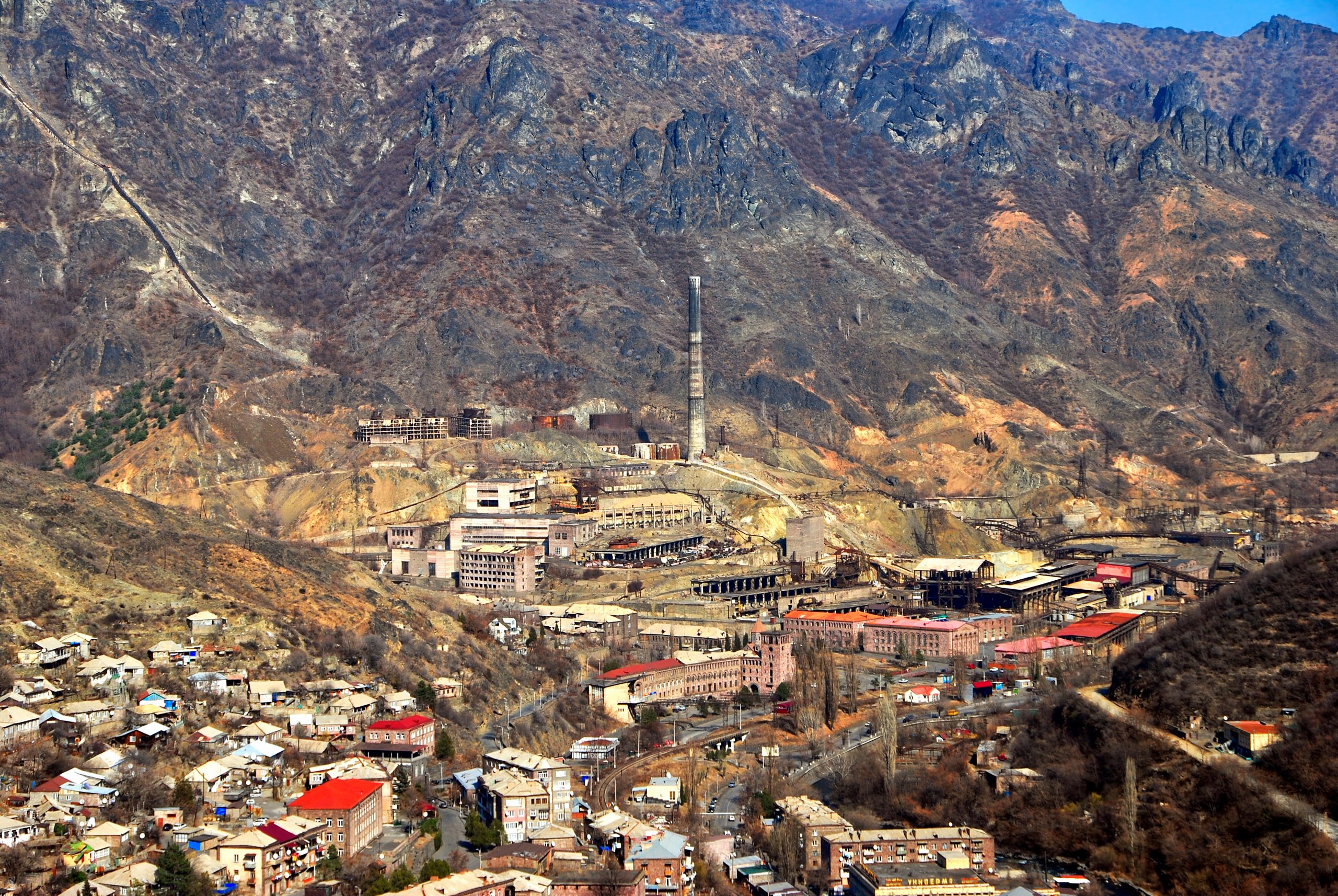
Lori Province, Armenia. Photo: Karen Fijian /Shutterstock.com
Pashinyan and Aliyev met in Sochi
Russian President Vladimir Putin, Azerbaijan’s President Ilham Aliyev and Armenian Prime Minister Nikol Pashinyan held trilateral talks in Sochi on Monday, October 31. According to the Press Office of the Russian President, as cited by the Caucasus Watch, Vladimir Putin said that three sessions of negotiations were held. “First, we talked one-on-one with the Armenian delegation and then with the Prime Minister of Armenia. Later, we spoke one-on-one with the Azerbaijani delegation and the President of Azerbaijan. Then the three of us talked for two hours, maybe a little more. In our general opinion, this meeting was very useful. This meeting created a very good atmosphere for possible future agreements on some fundamental issues. Today we agreed on a joint statement. To be clear, it was not possible to agree on everything. We had to remove some parts from the text which were previously processed at the level of experts. However, I agree with the general opinion that the meeting was useful and set the stage for further steps toward settling the situation.”
Baku and Yerevan “agreed not to use force” and “settle all disputes solely based on recognition of mutual sovereignty and territorial integration,” they said in a joint statement. As JAM news writes, political scientist Areg Kochinyan stated in advance that “nothing positive should be expected from the meeting in Sochi.” He believes that in Sochi, “the torpedoing of a western demarcation is taking place, and a Russian demarcation operation is being carried out instead”: “It seems that there is an agreement on demarcation by the end of the year, and if now the Russian Federation is trying to nullify it and advance its agenda, then it also hits the West’s ability to work on the peace process,” he added.
The fourth meeting between Aliyev and Pashinyan in Russia again failed to yield tangible results, Azerbaijani political observer Mais Kasumov said in a commentary for JAM news after the meeting. According to Kasumov, in the final statement of the meeting, “there is not a single novelty which would be worth talking about.”
“Yes, for the first time in meetings with Putin, the parties agreed on the supremacy of the Alma-Ata documents of 1991, which was already discussed in Prague. It can be assumed that the delimitation of borders will still be carried out according to maps from precisely 31 years ago.
Although this may be just a statement of fact, because after the Prague meeting, the parties were already conducting intensive negotiations on the delimitation of borders, and Russia had no choice but to declare them.” Kasumov also noted the absence of any wording on Karabakh in the document.
Sources:
- JAM News, „Fourth meeting with Putin: did Aliyev and Pashinyan hold their ground?“, https://jam-News.net/fourth-meeting-with-putin-did-aliyev-and-pashinyan-hold-their-ground/
- Caucasus Watch, „Joint Statement Signed by Aliyev, Putin, and Pashinyan in Sochi“, https://caucasuswatch.de/news/6270.html
Azerbaijan arrests „Iran-backed militants“
On October 31, the Azerbaijani authorities have arrested 19 Azerbaijani citizens who they said were members of an Iranian-backed militant group in the country, reports OC Media. Azerbaijan’s State Security Service (SSS) said they had exposed and neutralised an illegal armed group created by and under the control of the Iranian special services. The Security Service said the group was given false identity documents with which they travelled to Tehran through third countries, after which they were flown to Syria on military aircraft.
“They were involved in military exercises on the territory of Syria, where they were taught to use different firearms and combat tactics; each person who participated in the exercises was given various amounts of money”, they wrote. In addition to the 19 people arrested, the Azerbaijani security services said they had placed four others — Tohid Ibrahimbeyli, Rovshan Asadov, Orkhan Mammadov, and Elshad Hajiyev — on an international wanted list. They said the four were currently hiding in Iran.
The SSS identified participants in the alleged plot as being members of the Muslim Unity Movement, a prominent Shia activist group that has been at odds with the government for years; several of its members, including its leader, are behind bars and are considered by Azerbaijani human rights activists to be political prisoners.
The group denied the accusations and said that the people named in the SSS statement were not members.
As Eurasianet.org reminds us, Azerbaijan’s security services often make similar accusations. Religious members of Azerbaijan’s Shiite majority have long been under suspicion from Baku’s strongly secular authorities; most of the country’s political prisoners are religious activists.
Sources:
- AGHAYEV Ismi, AVETISYAN Ani, OC Media, Azerbaijan arrests ‘Iran-backed militants’, https://oc-media.org/azerbaijan-arrests-iran-backed-militants/
- NATIQQIZI Ulkar, Eurasianet.org, „Azerbaijan detains 19 in plot it blames on Iran“, https://eurasianet.org/azerbaijan-detains-19-in-plot-it-blames-on-iran
Azerbaijan to open embassy in Izrael
Azerbaijan has decided to open an embassy in Israel after 30 years of relations between the two countries and amid tensions with neighboring Iran. “The decision has already been made. The opening of the Azerbaijani embassy in Israel can only be delayed for technical reasons,” Arzu Naghiyev, an MP and member of the Azerbaijan-Israel parliamentary friendship group, told the Azerbaijani news site Pravda last week. He pointed out that the two countries have very good relations, despite the absence of an embassy.
As TV7 writes, 69% of all weapons imported by Azerbaijan from 2016 through 2020 were supplied by Israel. The announcement comes just after last month’s official visit to Azerbaijan by Israeli Defense Minister Benny Gantz for meetings focused on security and policy issues and aimed at fostering defense cooperation between the countries. During the one-day trip to the Republic, Jerusalem’s top defence official held talks with Azeri President Ilham Aliyev and was greeted with an honor guard ceremony at the Ministry of Defense by his Azeri counterpart Colonel General Hasanov Zakir Asgar Oglu.
Sources:
- I24News, “Azerbaijan to open embassy in Israel“, https://www.i24news.tv/en/news/israel/diplomacy/1667313067-azerbaijan-to-open-embassy-in-israel
- TV 7 Israel News, „Azerbaijan to open the first embassy in Israel“, https://www.tv7israelnews.com/azerbaijan-to-open-first-embassy-in-israel/
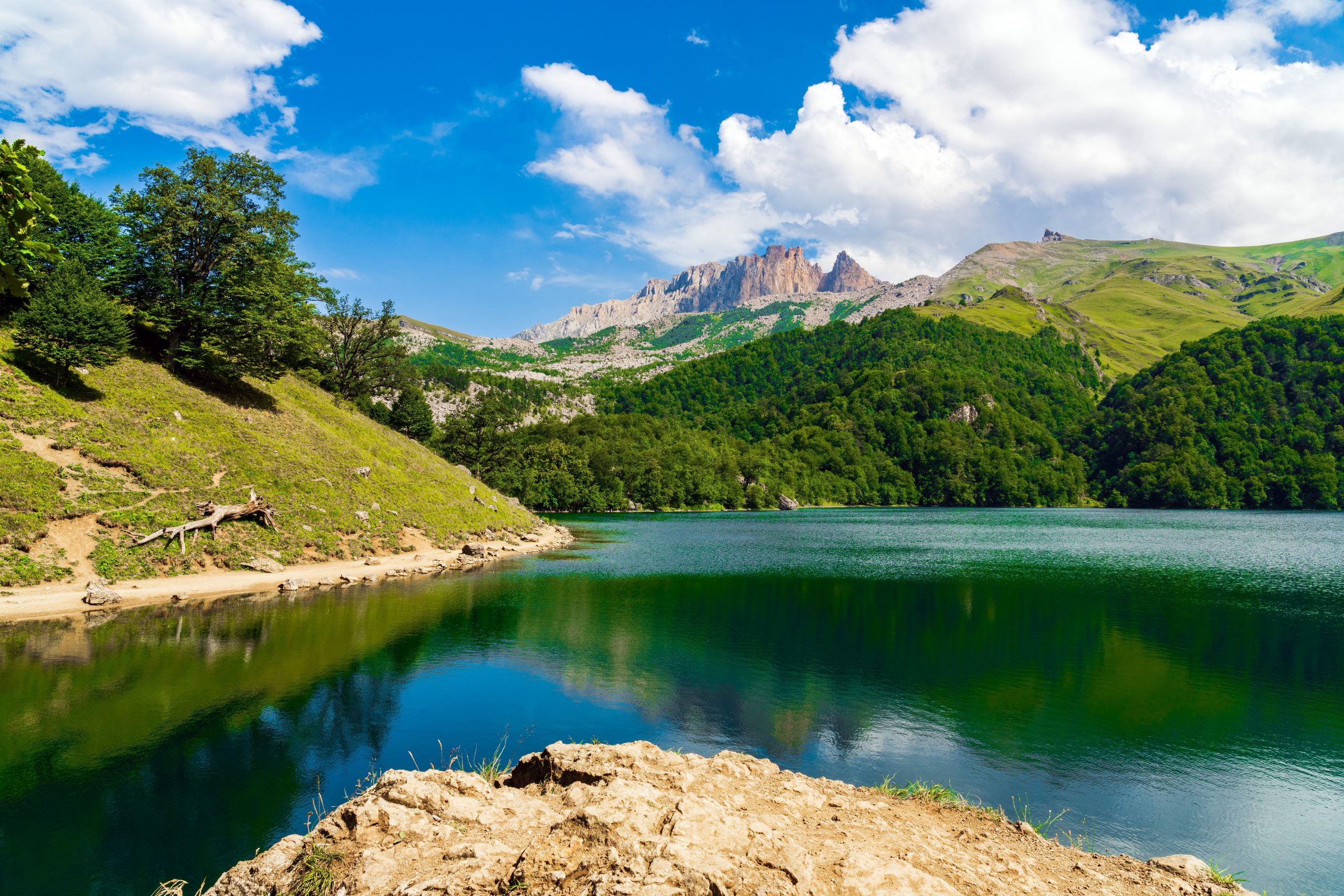
View on mountain lake MaralGol in Azerbaijan. Photo: Vastram/ Shutterstock.com
Billionaire Ruben Vardanyan to serve as Nagorno-Karabakh’s State Minister
Russian-Armenian businessman and billionaire Ruben Vardanyan was appointed de facto Minister of State by de facto President Arayik Harutyunyan on October 4. Vardanyan will coordinate the work of the following ministries: Ministry of Health, Ministry of Justice, Ministry of Foreign Affairs, Ministry of Agriculture, Ministry of Education, Science, Culture and Sports, Ministry of Social Development and Migration, Ministry of Territorial Administration and Infrastructures, Ministry of Urban Development, Ministry of Finance and Economy.
Despite possessing more executive power than his predecessor, Artak Beglaryan, Vardanyan’s appointment is “not seen as a concession of President Harutyunyan’s powers”, according to Aram Harutyunyan, an MP of the ruling Free Motherland party. The MP has claimed that Vardanyan’s appointment came in response to the “present situation in Nagorno-Karabakh” and that the powers of the Parliament will also be broadened through future constitutional amendments.
Vardanyan renounced his Russian citizenship and moved to Nagorno-Karabakh in September. “I am grateful to Russia; I was there as a person, as a businessman, and as a professional”, stated Vardanyan upon moving to the disputed region. “Realising all the risks, I made a decision to renounce Russian citizenship and move to Artsakh as an Armenian citizen. This decision was very difficult for me, but it is the right way.”
When de facto President Harutyunyan offered the post to Vardanyan, the businessman said that he would only accept if the decision received “wide public support”.
Vardanyan is best known for establishing the UWC Dilijan College, the Idea Foundation, and the Armenia 2020 project. He co-founded the investment company Troika Dialog in the early 1990s. He and his managers sold Troika Dialog to the Russian state-owned Sberbank for 1.4 billion USD. In 2014, he founded Vardanyan, Broitman and partners, an investment company serving the ultra-wealthy.
The post of State Minister of Artsakh was established in 2017 after constitutional amendments abolished the post of prime minister.
Sources:
- AVETISYAN Ani, “Billionaire Ruben Vardanyan to serve as Nagorno-Karabakh’s State Minister“, https://oc-media.org/billionaire-ruben-vardanyan-to-serve-as-nagorno-karabakhs-state-minister/
- Hetq.am, “Ruben Vardanyan Officially Appointed Artsakh State Minister“, https://hetq.am/en/article/149876
Armenians in Karabakh held a massive rally
Tens of thousands of people gathered in the de facto capital of Nagorno-Karabakh on October 31 to express concern over the region’s fate and its ethnic Armenian population. Estimated by the authorities at about 40,000 people, it appears to be one of the largest rallies held in Karabakh in many years.
Karabakh Armenian leaders again warned the Armenian government against unequivocally recognizing Azerbaijan’s territorial integrity through a bilateral peace treaty that Yerevan and Baku have discussed in recent weeks. They earlier voiced support for Russian peace proposals, which they say are far more beneficial for the Armenian side than a deal advanced by the West.
A statement adopted unanimously by the Nagorno-Karabakh parliament claiming to express the “collective will of the population” said that any possibility of “forcibly annexing” Nagorno-Karabakh to Azerbaijan would be “unacceptable” and a violation of international law.
“Artsakh [Nagorno-Karabakh] has never been and will never be part of independent Azerbaijan. This very idea should be the basis for the settlement of the Azerbaijani-Karabakh conflict”, the statement read. Armenia PM Pashinian insisted that he agreed to the Russian plan in early September and is ready to sign a relevant agreement with Azerbaijan.
Armenian opposition leader Ishkhan Saghatelian dismissed those assurances, saying that Pashinian is using his “provincial dexterity” to mislead the domestic public and foreign powers. “His claims that he is in favor of the Russian proposals will have no value until he makes it clear that he rejects the other variant [of the peace deal with Azerbaijan,]” he said.
Sources:
- AVETISYAN Ani, VANYAN Marut, „Thousands rally in Nagorno-Karabakh over fears for region’s future“, https://oc-media.org/thousands-rally-in-nagorno-karabakh-over-fears-for-regions-future/
- MKRTCHYAN Anush, azatutyun.am, „Armenian Opposition To Resume Anti-Government Protests“, https://www.azatutyun.am/a/32109089.html
- Civilnet.am, „Armenians in Karabakh hold a massive rally for self-determination“, https://www.civilnet.am/en/news/680719/armenians-in-karabakh-hold-massive-rally-for-self-determination/
Transparency International- Georgia: Anti-Corruption Bureau Proposal Fails to Meet the EU Recommendation
On November 1, the Georgian parliament passed the legislative amendments to the Anti-Corruption Bureau with eighty-four votes in favor and one against. Critics say the bill “does not correspond” to the European Union’s conditions for granting the country the membership candidate status. Based on the proposed amendments, the Anti-Corruption Bureau will oversee the implementation of the national anti-corruption strategy in the fight against corruption. It will keep a close eye on the operations of relevant entities and organizations. The bureau will be held responsible in front of the parliament and an interagency anti-corruption council.
The Bureau Head, who will be chosen through an open competition, will be responsible for submitting annual reports. The competition commission will shortlist the applicants and then present the list to the Prime Minister. The PM will choose and approve the candidate.
However, citing the fourth condition of the EU requiring domestic authorities to “strengthen the independence of the anti-corruption agency, which will handle all key anti-corruption functions”, Transparency International (TI) claimed the bill did not ensure the merger of various “key anti-corruption tasks” in a single body and failed to provide guarantees for its independence and effective work against corruption.
The organization said the adoption of the bill, which allows the country’s prime minister to appoint the head of the bureau, in its current form could leave the country without the desired status as the EU was unlikely to accept it.
Instead, TI has proposed the ruling party use a bill drafted with its involvement in 2020, which proposed the election of the head of the agency through votes by two-thirds of MPs, as well as granting an investigative function to the bureau. Opposition MPs as well slammed the proposals, claiming that “nothing would change.”
On October 26, Anri Okhanashvili, an MP from Georgian Dream and the head of the Legal Issues Committee, declared that Georgian Dream would begin a series of legislative changes to establish an anti-corruption bureau by the fourth of the 12 recommendations made by the European Commission.
The fourth recommendation from the European Commission is to increase the Anti-Corruption Agency’s institutional independence, provide the new Special Investigative Service and Personal Data Protection Service with resources appropriate to their mandates, and ensure their institutional autonomy.
Sources:
- 1tv.ge, „Parliament passes legislative revisions to Anti-Corruption Bureau with first reading“, https://1tv.ge/lang/en/news/parliament-passes-legislative-revisions-to-anti-corruption-bureau-with-first-reading/
- Agenda.ge, „Transparency International watchdog urges ruling party to amend the anti-corruption bill“, https://agenda.ge/en/news/2022/4252
- Caucasus Watch, “Georgian Dream to Make Legislative Changes to Anti-corruption Bureau According to EU Recommendations“, https://caucasuswatch.de/news/6243.html
Nika Gvaramia found guilty by the Tbilisi Court of Appeals
Nika Gvaramia, the founder of Mtavari TV, was found guilty by the Tbilisi Court of Appeals. Accordingly, the prison term of 3 years and six months sentenced by the Tbilisi City Court remains in force. In addition, the Court of Appeals convicted Nika Gvaramia for abuse of office in the episode of embezzlement of 6 million 700 000 GEL. The 50,000 GEL fine was replaced by imprisonment, but in the end, he will have to stay in prison for the previously determined period of 3 years and six months.
As in the initial ruling, the Court cleared Gvarmia of other charges brought against him, Article 221 (3) — commercial bribery, Article 362 (2b) — forgery that resulted in substantial damages, and Article 194 (3c) — money laundering accompanied by a receipt of substantial income. Judge Merab Jorbenadze also announced the verdicts of two other persons accused in the same case — Zurab Iashvili, director of InterMedia Plus (the company involved in the 2015 incident), and Kakhaber Damenia, who was Rustavi 2’s financial director at that time.
The Appeals Court upheld the ruling, which declared Iashvili innocent of the charges brought against him under Article 362 (2b) making, signing, or using a forged document, seal, stamp, or letter, and Article 221 (1) commercial bribery. Regarding Damenia, as in the original instance, the Appeals Court re-qualified Article 182 (2a, 3d) — misappropriation or embezzlement to Article 220, abuse of power, and imposed a GEL 50,000 (18,180 USD) to be paid into the state budget.
The European Union has released a statement that addressed the Tbilisi Court of Appeal’s decision to uphold imprisoned Mtavari Arkhi TV chief Nika Gvaramia’s sentence and noted that the EU “has been monitoring this case closely.” While remarking that the EU “does not comment on the merits of individual Court cases,” the statement brought attention to assessments made by the Public Defender regarding the case. It recalled that “’ stronger efforts to guarantee a free, professional, pluralistic and independent media environment, notably by ensuring that criminal procedures brought against media owners fulfill the highest legal standards’ represents one of the priorities identified by the European Commission.”
Sources:
- Interpressnews, „Nika Gvaramia found guilty by the Tbilisi Court of Appeals“, https://www.interpressnews.ge/en/article/122333-nika-gvaramia-found-guilty-by-the-tbilisi-court-of-appeals/
- Civil.ge, „EU ‘Closely’ Monitoring Nika Gvaramia’s Case“, https://civil.ge/archives/513699

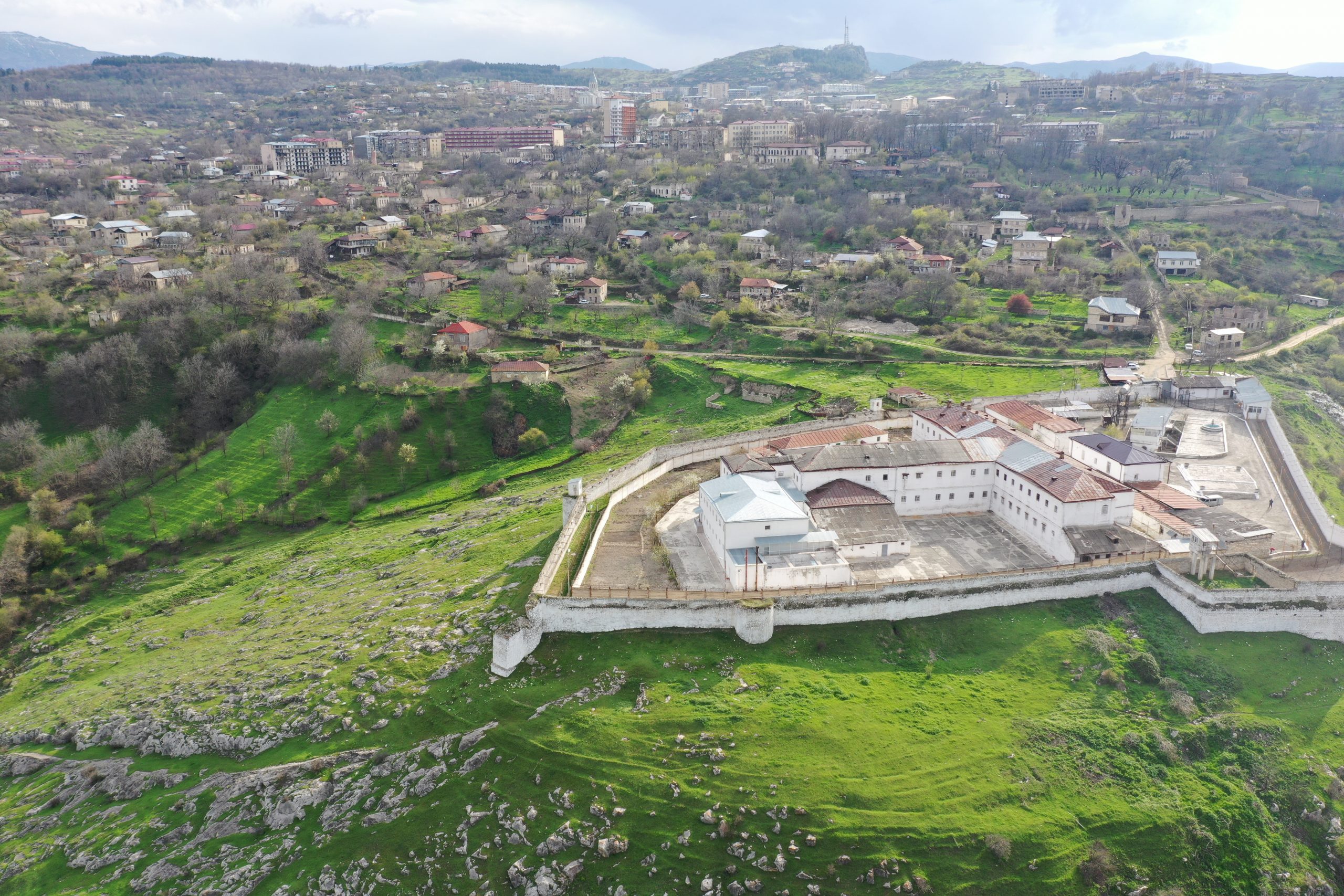
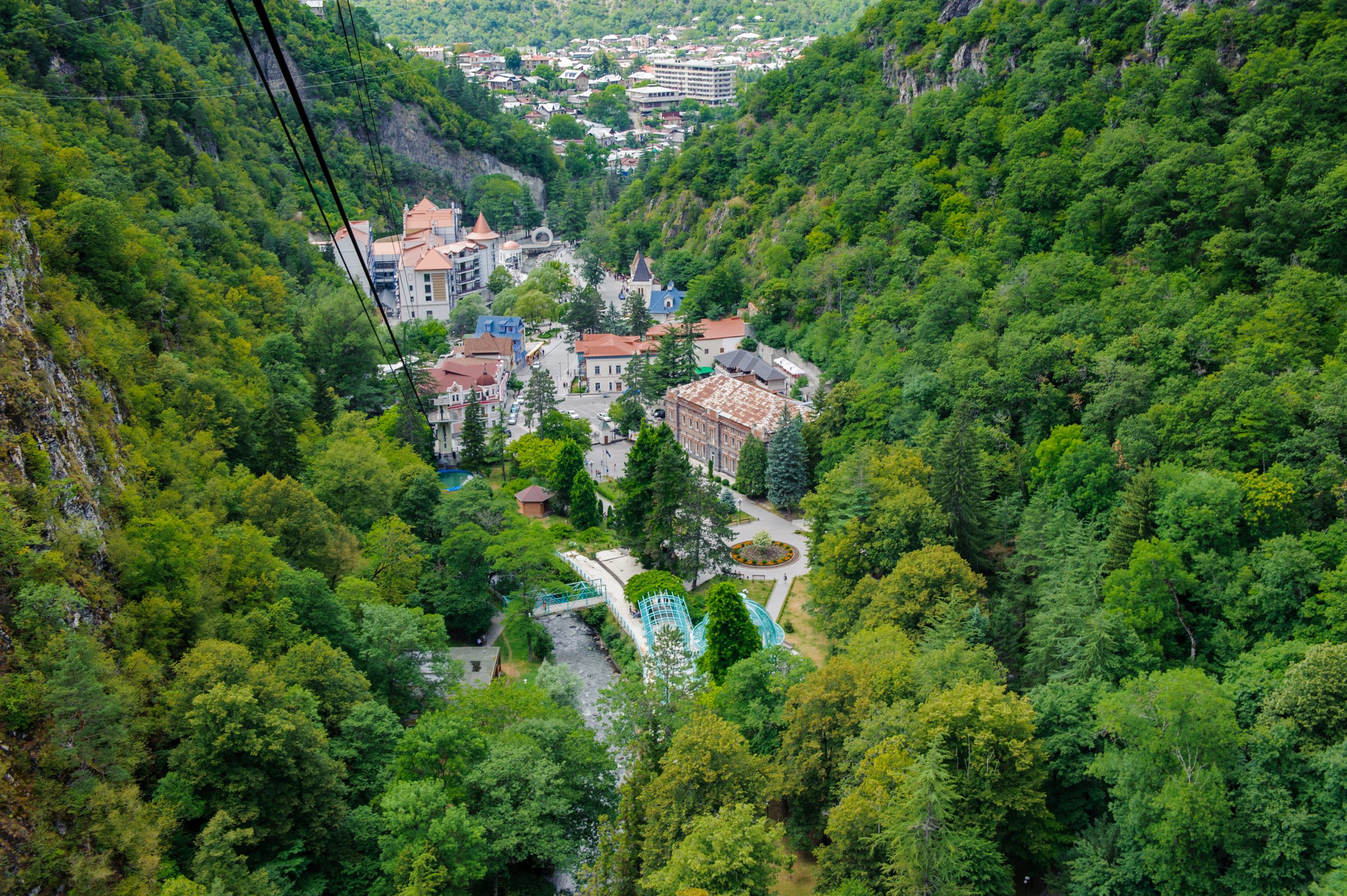
Contact us